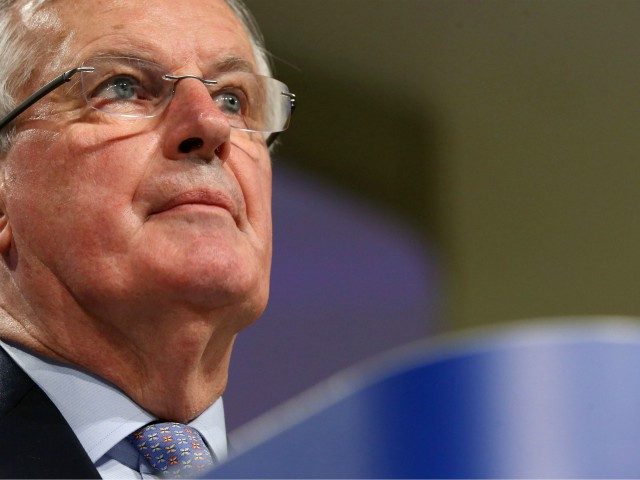The EU’s chief negotiator Michel Barnier has said that the UK’s refusal to stay governed by the European Court of Human Rights will have an “immediate and concrete effect” on the kind of deal that Brussels is willing to sign with London.
The European Convention on Human Rights (ECHR) is enforced by the European Court of Human Rights (ECtHR). The court is a body of the Council of Europe, and while the Council of Europe is not part of the European Union, it is expected that all EU nations abide by the ECHR.
The UK’s Human Rights Act ensures the ECHR is enshrined into domestic law, and there has been hope from Brexiteers that leaving the EU would result in an uncoupling of the country’s laws from EU-mandated conventions and the rewriting its own rights protection legislation, as the ECHR has been used by several convicted terrorists to avoid deportation. The European Court of Human Rights blocked the deportation of Islamist cleric Abu Qatada to Jordan in 2012, for example.
Speaking from Brussels, Belgium, on Thursday after the first round of negotiations, Mr Barnier said “the United Kingdom has informed us that it does not want to make a formal commitment to continue to apply the European Convention on Human Rights… If this position is maintained, this would have an immediate and concrete effect on the ambition of our cooperation, which will remain possible on the basis of international conventions, but which cannot be as ambitious as we wish.”
The British government said that while it would remain committed to the ECHR after the end of the transition period in December 2020, “we believe this does not require an additional binding international legal commitment”.
“How the UK gives effect to its long-standing strong human rights protections is a matter for the UK as an autonomous country,” the statement continued. Adding: “In the same way, it’s a matter for the EU and its member states to give effect to their own human rights protections according to their own legal orders.” Effectively: the UK’s laws will be her own business, and Brussels’ remain those of the EU-27.
Mr Barnier also observed that “Nor does it [the United Kingdom] want the European Court of Justice to play its full role in the interpretation of European law — and this is particularly serious when it comes to the fundamental rights of individuals.”
The European Court of Justice (ECJ), part of the Court of Justice of the European Union (CJEU), is the bloc’s supreme court and enforces EU laws, such as on fishing, employment, and environmental rights.
On the prospect of remaining bound to the ECJ in 2021, former Conservative Party leader Iain Duncan Smith said last week: “[W]e do not want to get locked into their regulations or their rules; we do not want to be overseen by the European Court of Justice in any shape or form, that [court] is for them, not for us; we are an independent coastal state; we will make our own decisions.”
Barnier also reiterated the EU’s unreasonable stance that the UK maintains a “level playing field” and gives European fishermen continued access to British territorial waters: two other red lines for British negotiators.
“I want to be clear once again: a trade and economic agreement with the United Kingdom will have to include a balanced solution for fishing,” Mr Barnier said.
Despite the barriers, both sides said that talks have been “constructive”. A government spokesman told The Guardian: “These are going to be tough negotiations — this is just the first round. In some areas, there seems to be a degree of common understanding of how to take the talks forward.
“In other areas, such as fishing, governance, criminal justice and the so-called ‘level playing field’ issues there are, as expected, significant differences. The UK team made clear that, on 1 January 2021, we would regain our legal and economic independence — and that the future relationship must reflect that fact.”
Negotiating parties will meet again in London on March 18th.

COMMENTS
Please let us know if you're having issues with commenting.